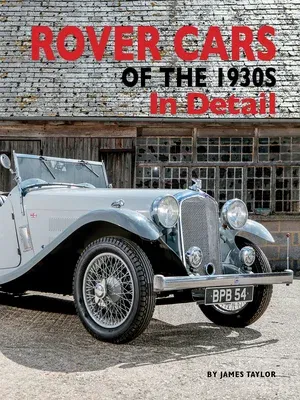At the start of the 1930s, the Rover Company was in a precarious
position. The slowdown in car sales caused by the Recession compounded
the problems of an incoherent model-range, and in late 1931 Rover's bank
called for an independent investigation into the company's business.
That investigation called for nothing short of a re-organisation of the
Board of Directors. Yet within three years, Rover had established one of
the soundest management teams in the business and had completely
rationalised its product range. Rovers became the preferred choice of
the professional classes: the cars were discreet, exceptionally well
made, and thoroughly reliable. Above all, they had become aspirational.
Very little has been published about this pivotal period in Rover
history, not least because for many years it was widely assumed that the
company's records for the period up to 1940 were lost in the Blitz
bombing of its Coventry factory that year. Fortunately, that is not
entirely true. Many records certainly were lost, but enough has survived
or are recoverable from other contemporary sources to form the basis of
this pioneering book. Rovers of the 1930s In Detail extends its
comprehensive and detailed coverage back into the late 1920s, when the
first of the 1930s models were introduced, and forward into 1947, when
the 1930s models that had been revived after the war finally went out of
production. The story is a remarkable one, researched and narrated by
today's leading Rover historian, James Taylor. This is a book that will
be welcomed by all enthusiasts of this respected marque, and in
particular by those who have felt their interest in the models of the
1930s to have been ignored for so long.

